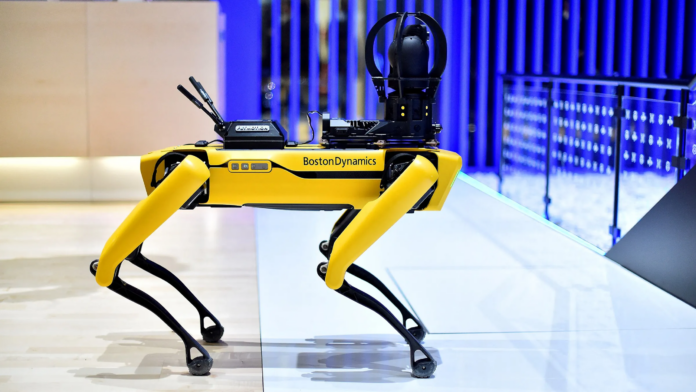In the realm of robotics, where machines astound with parkour stunts and dance to classic beats, a visionary seeks to elevate them beyond physical prowess. Marc Raibert, the driving force behind Boston Dynamics’ famed legged robots, now leads an ambitious venture at the Boston Dynamics AI Institute in Cambridge, Massachusetts.
While these robots have captured the internet’s imagination with their agility and antics, Raibert acknowledges that behind the scenes, their remarkable feats often rely heavily on human guidance. This realization propelled him to establish the AI institute in August 2023, backed by Hyundai, aiming to foster robots capable of navigating intricate situations autonomously.
Raibert, renowned for creations like Big Dog, Spot, and the acrobatic humanoid Atlas, recognizes the imperative to shift focus from physical capabilities to cultivating cognitive intelligence within robots.
His vision extends beyond routine tasks. The institute aims to explore diverse challenges, including robots capable of repairing bicycles—a task demanding dexterity and cognitive understanding. Another frontier involves an agile two-wheeled vehicle capable of envisioning, planning, and executing complex maneuvers, mirroring the agility of a parkour cyclist.
Raibert envisions a future where robots transcend mere functionality. He recognizes the allure of humanoids, citing the overwhelming response to Boston Dynamics’ robots. Despite the functional focus, he acknowledges the impact of aesthetics on public perception.
The institute’s ambition extends beyond current capabilities. Raibert anticipates a rise in humanoid workforce in areas like warehouses, where robots, including those from Boston Dynamics, are already making strides.
However, the quest isn’t confined to known territories. Raibert and his team aim to push the boundaries, exploring robots’ adaptability in complex environments. They strive to create machines capable of comprehending and navigating through uncertain and intricate scenarios with minimal human intervention.
As Raibert delves into expanding robot capabilities, the pursuit of AI-driven autonomy converges with the tangible intricacies of the physical world, paving the way for a new era in robotics.
This endeavor aligns with the broader trajectory of AI research, where advancements in machine learning and cognitive sciences are propelling the development of more sophisticated algorithms and neural networks. These innovations are pivotal in fostering robots that not only execute pre-programmed tasks but also exhibit adaptive learning and decision-making abilities in dynamic environments.
Through Raibert’s leadership, the Boston Dynamics AI Institute becomes a pioneering hub, envisioning a future where robots evolve from being programmed entities to intelligent beings capable of independent decision-making and problem-solving. The fusion of cutting-edge technology and human insight promises a revolutionary leap in robotics, as machines transcend their physical limitations to embrace a new realm of cognitive intelligence.
In this landscape, the convergence of AI and robotics serves as a testament to human ingenuity, propelling us into an era where machines seamlessly coexist, augmenting human capabilities and transforming industries across the spectrum.











